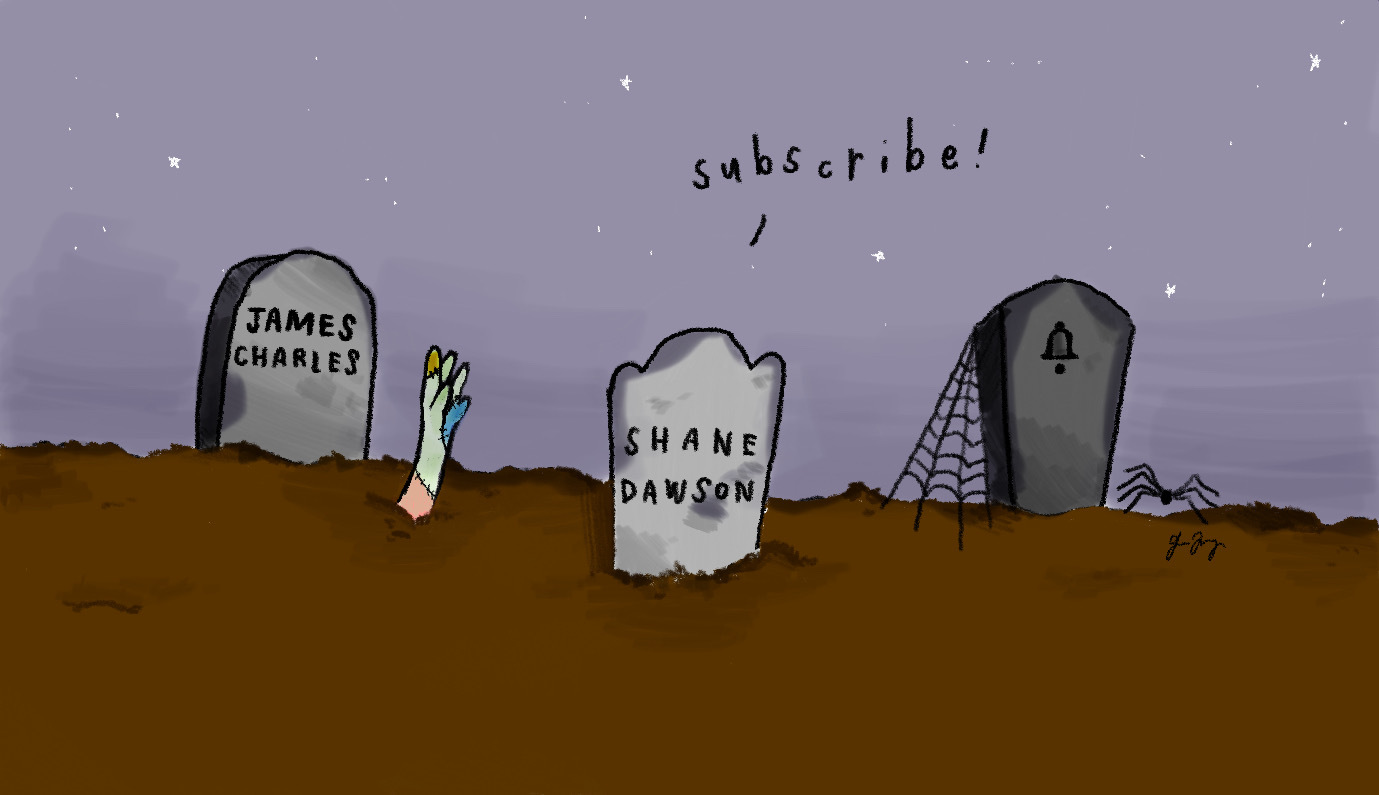Cancelling celebrities does not hold them accountable
October 29, 2021

In 2021, cancelling someone has become an everyday occurrence. Just for those who are unaware of this phenomenon, cancelling someone is a wide-spread boycott of them and their content that typically starts online when a group of people wish to hold a public figure accountable for their actions and words. Initially, it started with the good intentions of holding those in power accountable for their actions. With movements like #MeToo, cancelling someone was used to spread awareness about an influential person’s wrongdoings whether they were a politician, celebrity, or internet influencer.
Kevin Spacey was exposed for various incidents of sexual misconduct. This, clearly, was unacceptable and Spacey was cancelled, rightfully so, for it. He was dropped by his talent agency and publicist, written out of House of Cards, and replaced in various movies he was supposed to star in.
Unfortunately, cancelling someone has moved away from just holding another person accountable. It has become an internet trend—a way for internet users to cast judgment onto public figures and crucify them for the things they have done all while offering them no chance for growth. With every new cancellation, it has become evident that we have forgotten that all of us are human and make mistakes. While the good intentions of holding others accountable through cancellations still exist in some cases, what we have regarded as something worth canceling another person for has changed. Now, cancelling someone isn’t just used for serious offenses—like a past history of sexual assault or racism—but for simple, human mistakes.
Lizzo was cancelled for participating in a juice cleanse. Something that quite honestly affected no one else but herself, despite what those who tried to cancel her might say. She was simply a person making decisions for herself and living her life. This situation in no way deserved to be treated as negatively as it did, and it certainly didn’t deserve to be a reason that people boycotted Lizzo’s content for. It is clear to see just how misused and superficial cancellations have become.
This is something we shouldn’t have let happen, and it is something we need to undo. By bastardizing cancelling public figures in this way, we have watered down the consequences of being cancelled.
Being cancelled doesn’t really hold the same weight when other recent cancellations have been for meaningless and forgettable things like a celebrity being slightly rude to a fan. After all, it’s hard to be as passionate about the wrongdoings and transphobia of J.K. Rowling when Clairo, an indie musician, is being cancelled for nothing other than being an alleged industry plant in the same breath.
Cancelling someone now is simply just an internet trend. A short-term fad that will eventually pass, instead of a meaningful boycott or protest. This is the opposite of what it should be because it means that anyone who genuinely deserves to be cancelled will never really have to acknowledge their mistakes or undergo any period of growth. Instead, it’s much more likely that they won’t lose any supporters or face any real negatives. After all, by allowing cancelling to become a fad, we have guaranteed that any consequences of being cancelled are temporary.
Just look at all the internet influences who were rightfully cancelled in the past few years. None of them left the internet for good.
David Dobrik, a famous ex-Vine star and YouTube Vlogger, was exposed for being complicit in the alleged sexual assault of a woman, as well as having participated in other harmful activities in his vlogs, and was subsequently cancelled for it in March of 2021. All that Dobrik had to do was take a three-month hiatus for this situation to blow over. Dobrik only released a few disingenuous “apology” videos where he didn’t take accountability for his actions and instead chose to make excuses for the things that happened. Now, he’s made his return back to YouTube and has faced very few consequences. He still has 18.3 million subscribers and all of his recent videos are bringing in nearly 10 million views each.
James Charles, who has been cancelled more times than I can count, is still successful. Even after being exposed multiple times for having “flirty conversations” with minors, Charles has more than 24.5 million subscribers and has generated nearly two million views on all the videos he has released in the past two months.
Shane Dawson just recently was able to make his return to YouTube even after having his history of racism and inappropriate sexual jokes about animals and minors exposed. Before making this return, all Dawson had to do was release an apology video and not post for a year. The outcome of this backlash and cancellation only resulted in a slight drop in viewership and a year-long break.
The most disheartening fact about this unsuccessful pattern of cancellations is that these celebrities deserved to be cancelled the most and yet faced little-to-no consequences. They are extremely popular and influential figures. The fact that they had to face no consequences for their actions sends the wrong message that you can do the harmful things they did as long as you have the fans, money, and power.
Cancelling someone is supposed to be one of the only ways for a normal person to hold the powerful accountable. It’s supposed to be a way for us to enact change. But sadly, cancelling fails to achieve the effect that it is intended to.
Trying to hold public figures accountable in the era of fleeting cancelations doesn’t work; they’ll just return to making content once the initial backlash dies down. The sad thing is that these celebrities know exactly what they’re doing. Shane Dawson’s return to YouTube was titled “The Haunting of Shane Dawson.” In this video, Dawson doesn’t really show what he did to grow or learn or address the backlash he faced. Instead, he just shows his audience and the rest of the internet that he hasn’t changed at all and returns to making the same type of content he made before his break. Dawson spends the video setting up a series where he explores haunted places in Colorado. The most haunting thing about this series, though, is not the various scary places he explores but Dawson himself and his return to YouTube.
As Halloween gets closer and closer, perhaps this is what we have to fear the most. After all, the demons, ghouls, and spirits of scary movies are fictional. These public figures, and their problematic actions, are not.


